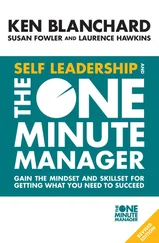There’s no shortage ofpeople willing to sit in an executive office. Gaze out at the city from the 58th floor. Buzz for coffee. Have your own bathroom. But you rarely see that ad on Monster.com. Wanted: Inexperienced, unqualified person to tell everyone else what to do, take long lunches. Obscene salary plus bonus, outrageous perks, possible private plane .
It’s hard to start at the top. The bottom, on the other hand, often has openings.
Consider Mark Shapiro. In 1991, after being turned down by 25 of 26 baseball front offices, Shapiro took the lowliest job in the Cleveland Indian organization, “assistant in baseball operations.” Translation: Pick up players at the airport, do math on player stats for contracts, office gofer. Evidently he did it well because he was promoted from one job to another – marketing, scouting, minor league management – all the way to assistant GM and then to General Manager … in charge of a turn-around, just the kind of unglamorous challenge he loves.
Whatever field you’re in, or want to get in, find the job that needs to be done, that people don’t seem to want to do. Sift the data on domestic production vs. off-shoring to Southeast Asia. Research employee benefits to find ways to attract and retain better staff. Pore over competitors’ profile until you find the market they’re neglecting. An interesting thing about the bottom as opposed to the top: There’s a lot to do down there.
Done well, it shows at the end of the quarter and the year – the times when promotions get passed out. And promotions lead to the top.
Did you ever wonderhow overnight business sensations get to be overnight sensations? One thing is for sure, it isn’t overnight. It’s over a lot of nights and weekends and years. Most of them were number 2s or 3s, after being division heads, after being in field offices, after coming out of training programs, after graduate school. They don’t call it a ladder of success for nothing. There are rungs. Climb them.
Case in point: the bio of Alan (A.G.) Lafley, CEO of Procter & Gamble, one of the world’s most successful companies. All he did was his job, over and over, all the way to the top.
1977 – Brand Asst, Joy
1978 – Sales Training, Denver
1978 – Asst Brand Mgr, Tide
1980 – Brand Mgr, Dawn & Ivory Snow
1981 – Brand Mgr, Special Assignment & Ivory Snow
1982 – Brand Mgr, Cheer
1983 – Assoc Ad Mgr, PS&D Division
1986 – Ad Mgr, PS&D Division
1988 – GM, Laundry Products, PS&D Division
1991 – VP-Laundry and Cleaning Products, Procter & Gamble USA
1992 – Group VP, Procter & Gamble Co/Pres, Laundry & Cleaning Products, USA
1994 – Group VP, The Procter & Gamble Company/Pres, Procter & Gamble Far East
1995 – Exec VP, The Procter & Gamble Company, (Pres, Procter & Gamble Asia)
1998 – Exec VP, The Procter & Gamble Company, (Pres, Procter & Gamble N. America)
1999 – Pres, Global Beauty Care and N. America
2000 – President and Chief Executive
2002 – Chairman of the Board, President and Chief Executive
Sure, now and then someone skips a few rungs by inventing a product, starting a company, or inheriting the family business. But you still have to perform. Ask all the dotcom geniuses whose venture capitalists replaced them with veteran CEOs. Or how about the case of the three partners, John, Paul, and George, who squeezed out the fourth, Pete Best, in favor of a guy named Ringo for a musical start-up called The Beatles. Or Edsel Ford who came within a breath of being forced out of the family automobile business by his father, Henry. In the end, nothing matters but results.
There are no shortcuts. It just seems like there are if you’re looking in from the outside. If your job description is “respond to and resolve customer care issues,” if you actually do it effectively every day, pretty soon you’ll be in charge of hiring and training, then setting up an out-sourced customer care unit in Bhopal, India, then overseeing global Customer Relations, then Sales and Marketing, then …
Work is a challenge. Or it should be.
Push yourself. When youmaster something, take on a tougher task. Not more of what you already do, not another job at another company that’s just a clone of the one you have. Sure, you can coast and do fine. But over time, you’ll get stale and tired and probably lose your edge. It’s like only playing par-three golf courses.
You perform at your best when you’re tested. So, if you’re good at what you do, if you can almost do it blind-folded, stop. Walk away. Raise the stakes. Do something you want to do even if you’re not sure you can do it.
Do what Andrea Jung did. After earning her degree from Princeton, Jung’s high-achiever family was likely less than thrilled that she passed up law school to go into the crass world of retailing. But she rose through the ranks of Bloomingdales and Neiman Marcus to become a star in luxury merchandising. About the time her family might have acknowledged her success, she walked away from what had become relatively easy, to see if she had what it took to re-energize venerable, but aging, make-up marketer, Avon.
It wasn’t like her last job, repeating what she knew; it was taking on a challenge. Jung invested in research to develop new lines of skin cream, opened up overseas markets, and found celebrity endorsers to attract younger buyers. Sales climbed 45%. Avon stock rose 160+%. So did Andrea Jung’s stock. After doing the non-glitzy job of remaking a traditional company, she’s been chased for lots of bigger, glitzier jobs.
Take on a challenge. Even if you fail, you failed at something hard, not easy. And you learn something you didn’t already know.
Part II IT’S NOT ABOUT YOU
Don’t expect applause, a raise, the admiration of your peers, or even your boss, when you accomplish something at work. No one else is excited that you made your monthly quotas. Wow! Look at me! Your peers are worried about making their quotas. No one is going to slap you on the back because your orders shipped early, your clients paid their invoices, or you were wooed by a competitor. Wow! Look at me some more! Those things are nice, but they’re expected to happen.
And by the way, no one really cares that you were late because your toddler threw up on your suit on the way to daycare. Or that you need a new transmission. Or that your paycheck doesn’t go as far as it used to.
Because it’s not about your quotas, your orders, your suit, your transmission, or your paycheck. It’s just not about you. It’s about the bottom line – market share, profit and loss, earnings, the stock price. That’s why it’s called business … not Wow! Look at me! Help the company do better and you’ll do better. It’s an old cliché, but clichés get to be clichés by being true.
It is about everyone but you
So, if it’s notabout you, then how do you get ahead? Concentrate on what does matter: Results. After you’ve made your quotas, help somebody else make theirs. Find new customers, even for other divisions. Read up on industry trends. Study your competitors. Help young hires find their way. Stay late and re-write presentations. Don’t try to be a hero. Be a problem-solver.
Читать дальше












